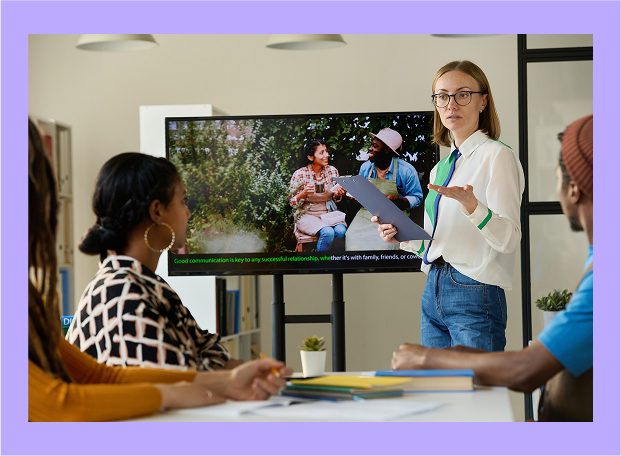Confidence is a crucial factor in helping students develop comprehensively. When confident, they dare to think, dare to do, easily integrate, and conquer life’s goals. However, not every young person is born with this confidence. It needs to be nurtured and cultivated from both the family, school environment, and each individual.
So how can we help students confidently express themselves? There are many approaches, focusing on building a foundation from within and creating favorable conditions from the outside.
Understand and Accept Yourself
The first step on the journey to building confidence for students is to help them understand themselves. They need to recognize their unique strengths and areas for improvement.
Accepting yourself, with all that belongs to you, is the most solid foundation. Encourage them to focus on personal progress rather than comparing themselves to others.
Cultivating a positive mindset plays an important role. Help them see imperfections as aspects being worked on and improved every day.
Keeping an emotion diary is a useful tool. Through it, students can explore their inner selves, resolve issues, and recognize their achievements.
Enhance Communication and Interaction Skills
Good communication skills help young people feel more confident when conveying their ideas, emotions, and thoughts. This is an essential skill in any environment.
Practicing speaking in front of a mirror or recording your voice can help them self-assess and gradually improve their tone and demeanor.
Actively participate in activities that require communication, such as presentations, debates, or plays. These are great opportunities to practice boldness.
Learning to listen sincerely and respond positively is also very important. This helps them build good relationships with those around them.
Participating in group activities helps students learn how to cooperate, share, and build confidence when working with others.
Create Opportunities for Students to Shine
Schools and families should create many playgrounds for students to express themselves. These could be speeches in front of the class, talent contests, or simply a lively lesson.
Encourage students to join clubs based on their interests and talents such as MC, fine arts, music, dance, or foreign languages. This is where they can develop their talents and confidently express their personality.
Allow students to present their opinions and personal views freely. This shows that their voices are heard and respected.
In the process of learning a foreign language or learning about another culture, sometimes they need to refer to multilingual materials. Using a reliable translation tool like Doctranslate.io can help them feel more confident when accessing information and communicating with international friends. They can refer to the user manual to learn how to use this tool effectively.
Participating in volunteer activities is also a great way. It helps them interact, learn, practice soft skills, and feel proud of their contributions to the community.
Build a Loving and Encouraging Environment
The surrounding environment plays an extremely important role in shaping confidence in children. A friendly, safe, and encouraging learning environment will help them boldly express their opinions.
Teachers and parents need to create a space where students feel recognized, valued, and loved. Sincere encouragement and praise have great power.
Regularly talking with children helps relieve stress, expand vocabulary, and increase confidence when communicating. Practicing independence early also builds confidence in one’s abilities.
Let children communicate and share their opinions, feel they have a voice in the family and school. Schools can organize intellectual and physical playgrounds for them to rub shoulders and improve their skills.
Face Challenges and Learn from Mistakes
Confidence helps students not be afraid to face difficulties and challenges. They will be more persistent and will not easily give up when encountering problems.
Encourage them to bravely try, not be afraid of making mistakes. What is important is what they learn from those failures.
Instead of criticizing them when they make mistakes, encourage and guide them on how to solve the problem. This helps build a solid mentality for them.
Building confidence for students is a process that requires coordination from many sides. By creating a supportive environment, providing the necessary tools, and encouraging them to explore themselves, we can help them become confident, capable individuals ready to face the future.


Leave a Reply